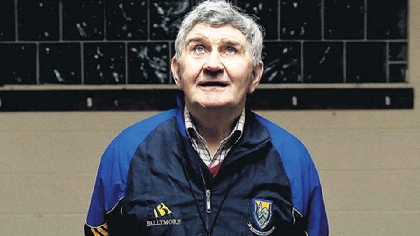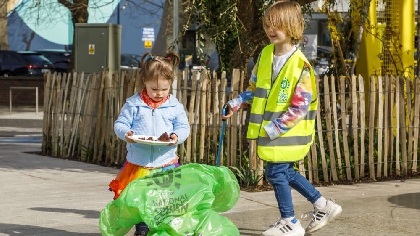
There are 307 patients with the virus in hospital and 55 in ICU.
NPHET says the country is facing a "long, slow" wave of Covid-19 that won't peak until next month.
1,571 new cases have been confirmed today - 70 per cent of them are among unvaccinated or partially vaccinated people.
There are 307 patients with the virus in hospital and 55 in intensive care units.
Professor Philip Nolan, chair of NPHET's modelling advisory group, says the disease will need to be kept under control in the coming weeks
Health officials are advising everyone to be aware of the risk factors for getting COVID-19:
·Distance – the risk of getting COVID-19 increases as the distance between you and others gets smaller. Keep 2 metres apart where possible
·Activity – How you spend time with people and what you do with them can increase your risk. Follow the government’s Stay Safe Guidelines when spending time with others
·Time – The more time you spend in close contact with other people can increase your risk of getting COVID-19. Keep track of who you spend time with and how
·Environment – Being outdoors is safer than being indoors. Where possible, meet with others outdoors. If this is not possible, keep windows and doors open when meeting others inside
·Symptoms – Know the symptoms. If you have them self-isolate and contact your GP immediately
They are:
·a fever (high temperature - 38 degrees Celsius or above)
·a cough - this can be any kind of cough, not just dry
·shortness of breath or breathing difficulties
·loss or change to your sense of smell or taste
·flu like symptoms
“If you have symptoms of COVID-19, you must self isolate and phone your GP for further advice.
If you have been referred for a test or are awaiting a test result, you must self isolate.
If you are a confirmed case of COVID-19 you must self isolate for 10 days.
If you are identified or have identified yourself as a close contact of a confirmed case, you must restrict your movements.
Department of Health’s COVID-19 Information Dashboard; providing latest case information.


 Tributes Paid To Former Wicklow GAA Manager Mick O' Dwyer Following His Death Aged 88
Tributes Paid To Former Wicklow GAA Manager Mick O' Dwyer Following His Death Aged 88
 Planning Application Lodged To Turn Wicklow Pub Into IPAS Centre
Planning Application Lodged To Turn Wicklow Pub Into IPAS Centre
 Inquest Hears 2 Year Old Girl Died Of Brain Damage Following Choking Incident At Greystones Creche
Inquest Hears 2 Year Old Girl Died Of Brain Damage Following Choking Incident At Greystones Creche
 Closure of Herbert Road Junction In Bray Confirmed To Facilitate Bus Corridor
Closure of Herbert Road Junction In Bray Confirmed To Facilitate Bus Corridor
 Annual Spring Clean Month Arrives Across County Wicklow
Annual Spring Clean Month Arrives Across County Wicklow




